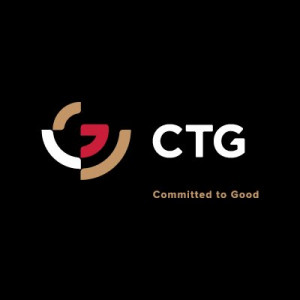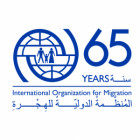وظيفة شاغرة
Consultant– Mainstreaming Psychosocial Support in the Education System - CTG Global
Job title
Consultant– Mainstreaming Psychosocial Support in the Education System in Libya
Place of performance
Tunis, Tunisia, Libya
Start date
7/1/2019
Duration
up to 9 months (@21.75days/month)
Qualification
Master’s degree in psychosocial and related domains such as psychology, social work, educational sciences (educational psychology, psychological services in education, inclusive education) or Social Sciences.
Sector experience
Minimum of 5 years of demonstrable relevant Social Development experience.
Geographical experience
Minimum of 5 year of experience in Africa (essential).
Language
Fluency in Arabic and English are essential.
Job description
CTG Overview
CTG stands for Committed To Good. With an ethical approach at the heart of all that we do, it is a description that makes us proud. Respect for the fundamental human rights of our staff, and those our staff encounter, is a cornerstone of our values. We strive for gender equality, inclusion and diversity, providing fair and equal opportunities for all. We take a zero tolerance approach to corruption and stay true to local labour laws and all local statutory requirements.
In operation since 2006, today we are honoured to serve clients in 15 fragile and conflict-affected states assisting with disaster relief, peace building, humanitarian aid and development programmes through our specialised recruitment, HR management and operational services.
Overview of position
Children who have been affected by conflict, violence and displacement face difficulty in achieving their full learning and developmental potential. Violence hampers learning and is detrimental to children’s well-being. Corporal punishment of children in schools is forbidden in Libya by law. However, available studies show that the level of violence against and amongst children is high in Libyan schools. The UNICEF- NCDC study (2017) on violence against children in Libya found that 90% of boys and 88% of girls reported that they had experienced some forms of violence at home, schools or in their communities There are no formal school-based referral or support mechanism in place for child victims of violence, including bullying, The VAC study found that children reported high levels of violence in schools (from adults and peer-to-peer). Teachers were also found to be the most common adult perpetrators of physical violence: almost 67 per cent of children reported physical violence by their teachers in the 12 months preceding the survey. Parents were the second-most common perpetrators of physical violence, with around 38 per cent of students reporting to have experienced violence by their parents in the last 12 months. These factors can impact a child’s ability to thrive in a learning environment, resulting in poor school performance.
UNICEF Libya with the Ministry of Education, Ministry of Social Affairs and other relevant ministries and partners is committed to ensure a protective environment for children in schools. Schools can also provide a link into families and communities which can enable a dialogue and encourage positive collective steps to end violence against children more broadly. UNICEF Child Protection section in coordination with Education section will support the Ministry of Education to mainstream, integrate and institutionalize a protection and psychosocial support component that is sustainable, applicable, effective and practical. This will include the development of a policy to integrate psychosocial support within schools, the development of a training/capacity development module for teachers and social workers and school counselors – including the review of the current curriculum implemented by the PSS department of the Tripoli university 0 on enhancing protection and psychosocial wellbeing in schools to be integrated within the in-service teachers/social workers training and piloting PSS and violence prevention activities in targeted schools.
Role objectives
Under the supervision of the Child Protection Specialist and in collaboration with Education Specialist, the consultant will support the Ministry of Education in enhancing the psychosocial wellbeing and protection of children in schools, through mainstreaming, integration and institutionalization of a psychosocial support model that is sustainable, applicable, effective and practical. More specifically, the consultant will:
review the existing modules currently implemented by the NGOs in Libya and also best practices /lessons learn applied in the other country offices in the similar context to inform the programming in Libya. This review process will have to be heavily relying on the inputs from the multi-disciplinary team;
support the Ministry of Education to review/update/develop a curriculum and operational procedures based on the lessons learnt and best practices identification to integrate psychosocial support within the formal education with practical tools, standards and measures;
develop and implement a PSS interventions package including capacity building based on the curriculum (including minimum standards, basic guidelines) for teachers/social workers on enhancing protection, psychosocial wellbeing and violence prevention in schools to be integrated within the in-service teachers/social workers’ training;
provide guidance and pilot the designed training package and practical interventions of integration of psychosocial support and violence prevention activities in selected targeted (30) schools.
For this consultancy, a national multi-disciplinary team will be established (comprising of but not limited to Ministry of Education, Ministry of Social Affairs, Tripoli University, CSO representatives, etc).
Project reporting
Reporting to the project manager.
Key competencies
Education:
Masters’ Degree, preferably in in psychosocial and related domains such as psychology, social work, educational sciences (educational psychology, psychological services in education, inclusive education) or Social Sciences.
Work Experience:
Experience in development of materials and hand-on to teachers/social workers and training guides
Experience in development of strategies.
Experience in working with national government ministries.
Experience in referral mechanism and experience in policy advocacy with government including designing policy framework and implementation standards.
Previous experience of working in MENA countries and/or conflict-affected countries.
Knowledge of the institutions of the UN system; ability to work in an international or multicultural environment. Working experience in developing countries.
Analytical and conceptual thinking and writing ability.
Fully proficient computer skills
Fluency in English. Knowledge of Arabic is considered an asset
Team management
This role doesn’t require management field.
Further information
MAIN RESPONSIBILITIES AND TASKS:
The consultant will support UNICEF and the Ministry of Education to achieve the following results:
Establish a national multi-disciplinary team (Ministry of Education, Ministry of Social Affairs, Tripoli University, national CSO representatives, etc) to review all the existing practices of psychosocial support in Libya.
Conduct desk review of available literature including best practices and experiences of provision of PSS in schools for the review of the national team. Review the curriculum of the Tripoli University on the essential content that is used for the teaching of the social workers and teachers.
Review existing policy frameworks for management of safety, psychosocial support and prevention of violence in schools and ascertain the adequacy of these frameworks to guide the implementation and suggestions to address any identified gaps. The consultant will be responsible for assessing validity and applicability, in consultation with the national team and based on this will develop a strategy/policy framework to integrate PSS in schools and address identified gaps.
Organize a series of meetings and a validation workshop with key stakeholders to review, present and endorse the updated strategy and policy framework.
Support, oversee and undertake if possible the field visits to selected (30) schools and identify specific safety and protection concerns among students and those who are in contact with students in schools.
Review existing structures in schools and determine how to mainstream child protection and psychosocial support within these structures, such as PTAs, parents’ councils, students’ councils/clubs and whether there is a need to establish a child protection committee in schools.
In consultation with the national team and UNICEF, develop a comprehensive curriculum and operating procedures that will include but will be not limited to:
Forums of engagement with the children in schools
Forums of engagement with parents in school
Standard supply of recreational materials
Training manual development for teachers and school counsellors/social workers
Capacity building element of teachers as well as school counsellors and social workers, including development of a training manual (ToT)
Provide guidance and support to pilot the designed curriculum/training package and practical PSS interventions in at least 30 schools in eastern, western and southern Libya and provide feedback
Undertake the capacity building of selected teachers, school counsellors and social workers through ToT – where at least at least 60 teachers and 60 schools counsellors/social workers received ToT PSS in schools (with contents customized to the two groups) – and cascade training plan is implemented.
Conduct regular monitoring visits when feasible and analyze field trip reports to ensure adherence to the developed curriculum and report the lessons learnt.
Propose a monitoring and evaluation strategy for the pilot implementation of mainstreaming PSS and prepare an M&E module (including tools) (for cascade training, pilot phase in 30 schools, third party monitors etc)
Conduct an end of project workshop and present outcomes, lesson learned and best practices with key stakeholders and agree on the way forward. Final report presented to UNICEF and Ministry of Education.
DELIVERABLES:
Payments
Deliverables
Timeframe
1st payment –20 % of the total payment
Desk Review submitted to UNICEF
Facilitate the establishment of the national committee with the development of the ToR
Existing policies reviewed and updated strategy/policy framework to integrate psychosocial support and violence prevention in schools developed
Minutes of the coordination meetings with the national team submitted.
Validation Workshop event facilitated, and report cleared by UNICEF
July – September 2019
2nd payment – 50 % of the total payment
Develop the curriculum/training package and practical operational procedures for PSS interventions and pilot the designed package in at least 30 schools based on the deliverables described for the 1stpayment, including:
5-day ToT training/capacity building package on PSS in schools developed for selected teachers, social workers and school counsellors, including tools. Finalization of package in consultation with UNICEF, based on feedback on the shared tools
Roll out of the ToT training package to at least 30 teachers and 30 social workers, schools’ counsellors.
Coaching and support for the cascade training to be planned and undertaken by trained teachers/social workers
Minimum standards for integrating PSS in schools including guidance on child friendly complaint mechanism, mapping of available resources and referral mechanism to services developed
Develop the monitoring checklist for the third-party monitors
Technical guidance, coaching and monitoring (through the third party monitors) provided for piloting the package in 30 schools.
October -December 2019
3rd payment
30%
Monitoring and supervision report on the implemented activities in 30 schools including lessons learnt and steps forwards
Finalization of comprehensive package reflecting strategy/policy Framework, supportive tools, training package and monitoring strategy
Final workshop report with next steps of taking this programme to the next phase (methodology revision based on lesson learned model for scale up)
Final consultancy report submitted, inclusive of all package
January – March 2020
Reporting Requirements:
The consultant is expected to provide monthly progress reports delivered within 5 days of the end of every month (English version) as well as minutes and recommendations at the end of each meeting.
Reports following each trip mission should be submitted no later than 15 days after the end of the mission (English version)
A final report should be submitted within a month following the end of the mission (English version)
Administrative arrangements:
The consultant will be expected to operate from Tunis for the cumulative period of 3 months with at least four travels to Tunis. The rest of the time, the consultant can work from elsewhere
The consultant is expected to visit Libya three times during the duration of the consultancy provided that the security situation allows and the consultant with the support of CTG is able to obtain a Libyan visa.
If the consultant is not able to speak Arabic, she/he should make provisions for the translations/interpretations for the meetings and interviews with the counterparts and partners.
Location:
Tunis, Tunisia with travels to Libya (3 months – all together) combined with the remote work from elsewhere (6 months)
Please click on the link below to apply:
https://recruitmentctg.force.com/xcdrecruit__Community_PositionDetails?id=a111o00000KFJwHAAX
لتقدم للوظيفة أنتهت صلاحية الاعلان




